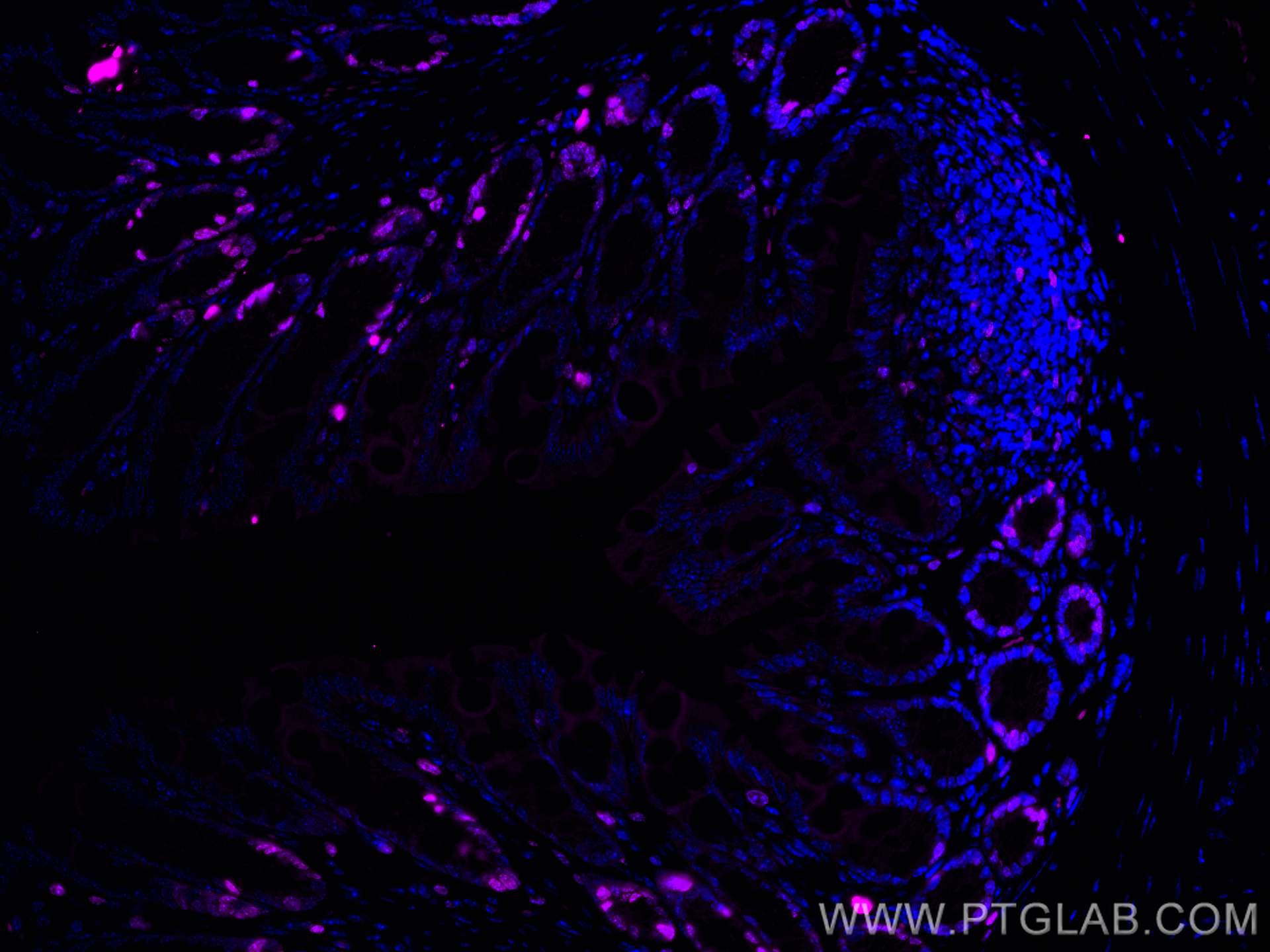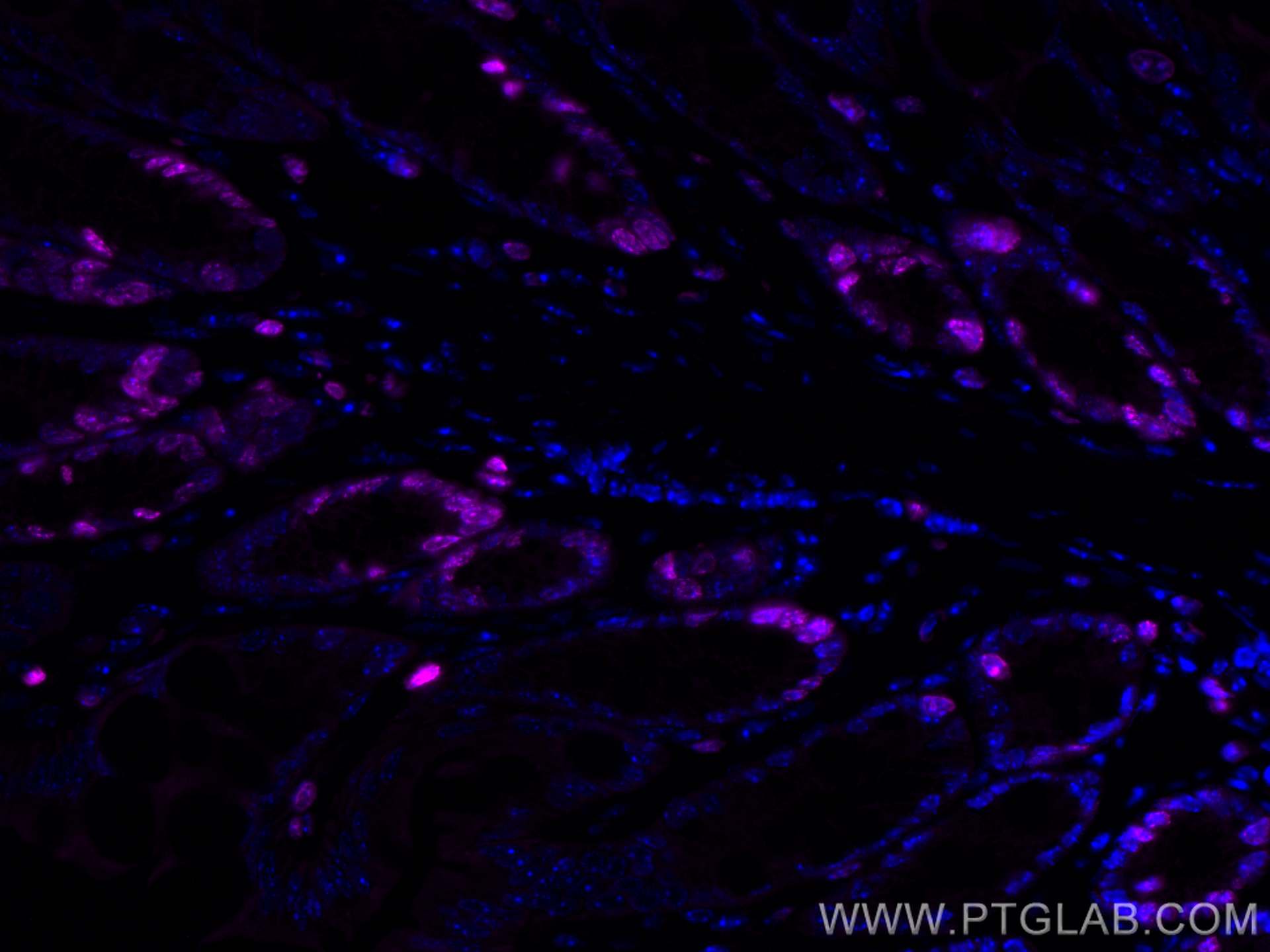CoraLite® Plus 647-conjugated ki67 Polyclonal antibody
ki67 Polyclonal Antibody for IF-P
Host / Isotype
Rabbit / IgG
Reactivity
mouse
Applications
IF-P
Conjugate
CoraLite® Plus 647 Fluorescent Dye
验证数据展示
经过测试的应用
| Positive IF detected in | mouse colon tissue |
For other applications, we recommend the unconjugated version of this antibody, 28074-1-AP
推荐稀释比
| Application | Dilution |
|---|---|
| Immunofluorescence (IF) | IF : 1:50-1:500 |
| It is recommended that this reagent should be titrated in each testing system to obtain optimal results. | |
| Sample-dependent, Check data in validation data gallery. | |
产品信息
CL647-28074 targets ki67 in IF applications and shows reactivity with mouse samples.
| Tested Applications | IF-P |
| Tested Reactivity | mouse |
| Immunogen | ki67 fusion protein Ag27894 种属同源性预测 |
| Host / Isotype | Rabbit / IgG |
| Class | Polyclonal |
| Type | Antibody |
| Full Name | antigen identified by monoclonal antibody Ki 67 |
| Synonyms | D630048A14Rik, Ki 67, Ki67, Mki67 |
| Calculated Molecular Weight | 351 kDa |
| GenBank Accession Number | NM_001081117 |
| Gene Symbol | Mki67 |
| Gene ID (NCBI) | 17345 |
| Conjugate | CoraLite® Plus 647 Fluorescent Dye |
| Excitation/Emission Maxima Wavelengths | 654 nm / 674 nm |
| Form | Liquid |
| Purification Method | Antigen affinity purification |
| UNIPROT ID | E9PVX6 |
| Storage Buffer | PBS with 50% Glycerol, 0.05% Proclin300, 0.5% BSA, pH 7.3. |
| Storage Conditions | Store at -20°C. Avoid exposure to light. Stable for one year after shipment. Aliquoting is unnecessary for -20oC storage. |
背景介绍
The Ki-67 protein (also known as MKI67) is a cellular marker for proliferation. Ki67 is present during all active phases of the cell cycle (G1, S, G2 and M), but is absent in resting cells (G0). Cellular content of Ki-67 protein markedly increases during cell progression through S phase of the cell cycle. Therefore, the nuclear expression of Ki67 can be evaluated to assess tumor proliferation by immunohistochemistry.
实验方案
| Product Specific Protocols | |
|---|---|
| IF protocol for CL Plus 647 ki67 antibody CL647-28074 | Download protocol |
| Standard Protocols | |
|---|---|
| Click here to view our Standard Protocols |

